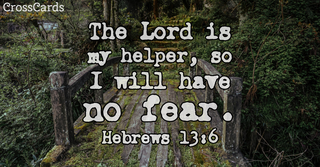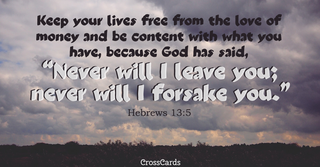
Change Translation
- Recent Translations
- All Translations
Images for Hebrews 13:12
Hebrews 13:12 Meaning and Commentary
Wherefore Jesus also
In order to answer the type of him;
that he might sanctify the people with his own blood:
by "the people" are meant the people who are the objects of divine love and favour; a chosen and covenant people; a distinct and peculiar people; Christ's own special people, by the gift of his Father to him: and the sanctification of them does not design the internal sanctification of them, though this is from Christ, and in consequence of his blood; nor does it so much regard the cleansing of the filth of sin, though Christ's blood sanctifies, in this sense; but rather the expiation of the guilt of sin, which Christ has fully took away; complete pardon being procured, and a perfect righteousness brought in: and this by "his own blood"; the priests sanctified, to the purifying of the flesh, with the blood of others, with the blood of bulls and goats; but Christ with his own blood, which he was, really, a partaker of; and his human nature, being in union with his divine person, as the Son of God, it had a virtue in it, to sanctify and cleanse from all sin, and to make full expiation of it; in shedding of which, and sanctifying with it, he has shown great love to his people: and, that he might do this agreeably to the types of him on the day of atonement, he
suffered without the gate;
that is, of Jerusalem: the Syriac version reads, "without the city"; meaning Jerusalem; which answered to the camp of Israel, in the wilderness; without which, the bodies of beasts were burnt, on the day of atonement: for so say F26 the Jews;
``as was the camp in the wilderness, so was the camp in Jerusalem; from Jerusalem to the mountain of the house, was the camp of Israel; from the mountain of the house to the gate of Nicanor, was the camp of the Levites; and from thence forward, the camp of the Shechinah, or the divine Majesty:''and so Josephus F1 renders the phrase, without the camp, in ( Leviticus 16:27 ) by (en toiv proasteioiv) ; "in the suburbs"; that is, of Jerusalem, where Christ suffered,
F26 T. Bab. Zebachim, fol. 116. 2. Bemidbar Rabba, sect. 7. fol. 188. 3. 4. Maimon. Beth Habbechira, c. 7. sect. 11.
F1 Antiqu. l. 3. c. 10. sect. 3.
Hebrews 13:12 In-Context
Study Tools
PLUSUnlock Notes
This feature is for PLUS subscribers only. Join PLUS today to access these tools and more.
JOIN PLUSUnlock Highlights
This feature is for PLUS subscribers only. Join PLUS today to access these tools and more.
JOIN PLUSUnlock Bookmarks
This feature is for PLUS subscribers only. Join PLUS today to access these tools and more.
JOIN PLUSTrack Your Reading
Create a free account to start a reading plan, or join PLUS to unlock our full suite of premium study tools.


